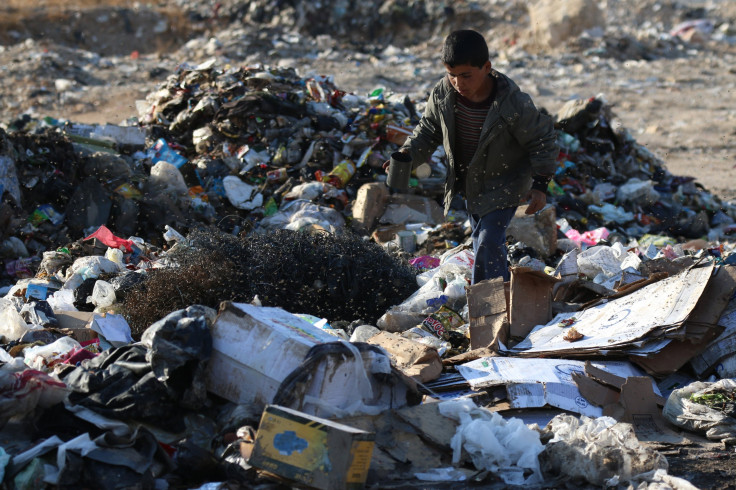Ahead Of Vienna Talks On Syrian Political Transition, Kerry Says 'We Have To End The War'

The war in Syria needs to end before a meaningful political transition can take place in Syria, U.S. Secretary of State John Kerry said at an event in Washington Wednesday. He said despite cooperating with Russia and Iran, both allies of President Bashar Assad, in the diplomatic talks this week, there was no way that some of America's allies in the Middle East would give up on trying to remove him from power.
"[We] need a political transition that sidelines Assad so that we can unite more of the country against extremism," Kerry said Wednesday in a speech at the Carnegie Endowment for International Peace, a think tank in Washington. He said the U.S. and the rest of the world had no other choice than to "chart a course out of hell."
Kerry's speech comes just two days before he meets with officials from Russia, Iran, Egypt and several other Middle Eastern countries in Vienna to discuss a political transition in Syria. The meetings will mark the first time the U.S. has engaged with Iran publicly on the subject of Syria. Both Iran and Russia have intervened militarily in Syria on behalf of Assad, while the U.S. is supporting rebels in the country that not only want to defeat the Islamic State group, but also Assad.
For the duration of Syria's 4 ½-year civil war, the U.S. has maintained the position that there is no future for Syria as long as Assad remains president, previously denouncing Iran and Russia for supporting Hezbollah fighters in Syria that are propping up Assad. Even after striking a historic diplomatic nuclear deal with Iran this summer, the U.S. remained skeptical of engaging Iranian officials on the topic of a political transition in Syria.
But following the Russian military intervention in Syria last month, the rhetoric within parts of the U.S. administration changed. Officials in the State Department and the White House no longer denounced Assad as a dictator or tyrant. Instead, both Kerry and President Barack Obama said the U.S. is willing to work with Assad’s allies, including Iran and Russia, to find a way to end the conflict.
"This is human catastrophe unrolling before our eyes," Kerry said of the situation in Syria. "It has been four and a half years of nonstop horror." Kerry said that 1 in 20 Syrians has been killed or wounded, 1 in 5 is a refugee and that the average life expectancy in Syria has dropped by nearly 20 years.
But U.S. officials have indicated recently that they are willing to keep Assad in power for now in order to initiate a "meaningful transition process," said State Department spokesman John Kirby this week in a press briefing.
“Nobody has said that there's no role for Assad in terms of the transition process. It’s just that a meaningful transition can’t leave him in power," Kirby said.
Kerry said the diplomatic talks on Syria were meant to sideline Assad, not remove him completely, at least for now. But, he said, "there's no way a number of the other countries in this coalition are going to let up or stop" trying to get rid of the president.
"It's not just ISIS or Assad," Kerry said. "That's not the choice," adding there was a middle ground that the U.S. was trying to pursue in the country, but it could only be achieved if the fighting stopped. "We have to end the war in Syria," he said.
© Copyright IBTimes 2024. All rights reserved.











